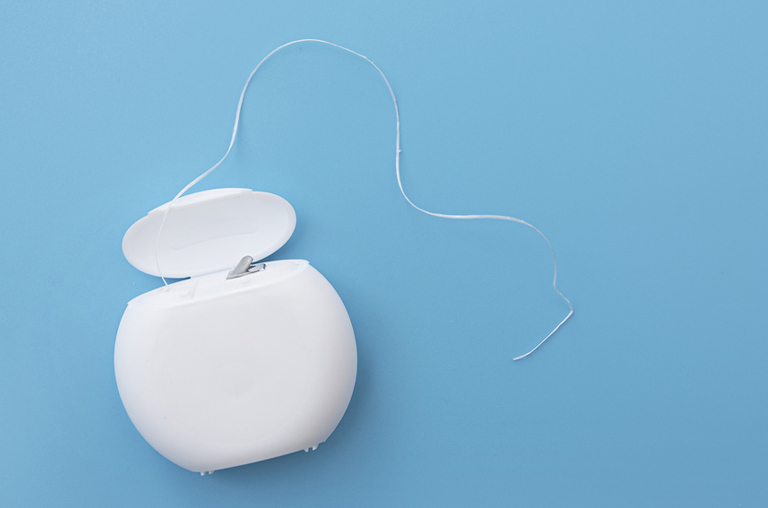Let’s talk floss: everyone should floss daily, but only 41% of Americans actually floss at least once a day. Flossing your teeth isn’t just dental check-up homework, it’s an essential component in a healthy oral hygiene routine. There are many preventative measures and health benefits that flossing creates. Flossing helps to reduce the risk of heart disease and stroke by removing pathogenic bacteria that builds up and enters into the blood and arteries. Daily flossing also helps to keep your immune system healthy, as bacteria in the mouth can enter through your airways and cause respiratory illness. Here are just a few of the health benefits that flossing daily can accomplish:
1. Reduces the risk of cavities by removing plaque and tartar between teeth.
Cavities can be painful, and if left untreated, may require a root canal to repair the tooth decay. Flossing helps to reduce the risk of cavities by removing the bacteria and plaque buildup between teeth that causes decay. Plaque and bacteria left untreated eventually develops into tartar which strongly fuses to the tooth enamel, leading to odor, discoloration, and more dangerous bacteria.
2. Helps to remove plaque and food particles in between teeth where a toothbrush could not reach
Brushing alone does not remove all leftover food particles and bacteria. Flossing is the best way to ensure more bacteria and food particles are removed for a deeper clean.
3. Reduces sore, red and puffy gums
You don’t need to be aggressive with flossing, and while slight bleeding is normal while flossing, it can reduce the pain of sore and inflamed gum tissue. Flossing regularly keeps your gums looking and feeling healthy.
4. Helps prevent gum disease/gingivitis
Gum disease is caused by the buildup of plaque and bacteria below the gum line, lodging into the gum tissue and can even eventually lead to tooth loss. Gingivitis, while treatable, can be very painful and uncomfortable when eating and brushing your teeth. Flossing helps to prevent gum disease and reduce the risk of bacteria buildup.
5. Removal of plaque and bacteria that causes bad breath aside from brushing alone
Having bad breath is never ideal, but it’s completely preventable with brushing and flossing. While brushing your teeth is essential and helps reduce odor, flossing is highly effective in removing the bacteria and food stuck between your teeth that causes odor.
6. Reduces the development of tooth decay and discoloration
Enamel helps keep teeth strong and acts as a protective barrier between bacteria and the tooth. Overtime, tooth decay occurs due to plaque buildup in the tooth and gums that eventually turn into tartar, which erodes enamel and penetrates the tooth causing decay and discoloration.
Best Flossing Practices
Use a flossing method that you most prefer, such as floss picks, thread, a water pick, or air flosser; all will achieve the task for oral hygiene. Floss your teeth daily. It’s better to floss before bedtime and before brushing your teeth. That way, bacteria buildup from the day is dislodged so it can be removed from the mouth by brushing the teeth. Try putting your floss on your bathroom counter out in the open, or in a place that you see and use regularly to remind yourself to floss each day. Even with braces, flossing is easy with thread floss by passing it through the wire across the teeth. For more information on the importance of flossing and developing a solid oral hygiene routine, contact Dr. Vereen’s office to book an appointment for a consultation.

